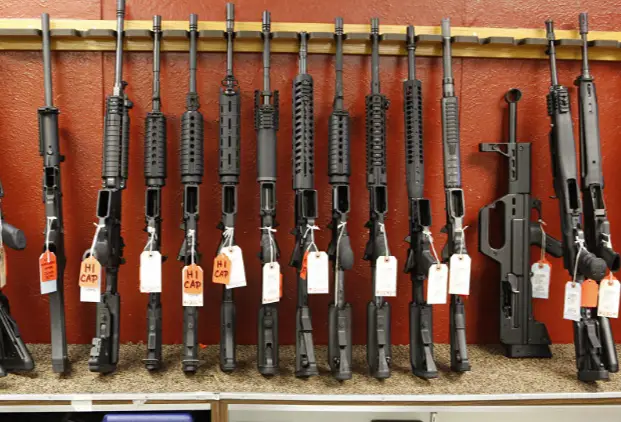
In light of some inconclusive results from various studies, a recently released study published in the science journal Epidemiologic Reviews seeks to solve the question of whether or not gun control reduces gun violence. It’s the first such study to combine the droves of international research to see if there’s a bigger picture.
Although the authors were careful to point out that their findings do not conclusively prove that gun control results in fewer gun deaths, they found a “compelling trend” that suggests fewer gun deaths were the result of restrictions on gun purchases.
“Across countries, instead of seeing an increase in the homicide rate, we saw a reduction,” Julian Santaella-Tenorio, a doctoral student in epidemiology at Columbia University and the study’s lead author, told Vox.
Santaella-Tenorio’s study (co-authored with Columbia professors Magdalena Cerdá and Sandro Galea, as well as the University of North Carolina’s Andrés Villaveces) examined roughly 130 studies that had been conducted in 10 different countries. Each of those 130 studies had looked at some specific change in gun laws and its effect on homicide and/or suicide rates. Most of those 130 studies looked at law changes in the developed world, such as the US, Australia, and Austria. A few looked at gun laws in developing countries, specifically Brazil and South Africa.
This isn’t, then, a study that compiled its own original data on one specific gun law. It’s actually more valuable than that: It’s telling us what all the different studies on individual laws say when you examine them put together.
“The simultaneous implementation of laws targeting multiple firearms restrictions is associated with reductions in firearm deaths,” the study found.
No specific laws were highlighted by the study because there are “so many different kinds,” according to Santaella-Tenorio. But three measures seems to have an effect in all the countries studied:
- Banning “weapons that are actually very powerful,” like automatic weapons.
- “They all implemented background checks.”
- “They all required permits and licenses for purchasing guns.”
“It’s really hard. In epidemiological studies — for example, pharmaceutical ones — you can randomly select your groups, and then have one group exposed to the pill and the other group not exposed,” Santaella-Tenorio said. “However, in policy studies … you can’t have some states be exposed to legislation and other states not.”
From Vox:
So what do Santaella-Tenorio et al. conclude? First, and most importantly, that gun violence declined after countries pass a raft of gun laws at the same time: “The simultaneous implementation of laws targeting multiple firearms restrictions is associated with reductions in firearm deaths,” the study finds.
Featured image: sputniknews.com





Leave a Reply